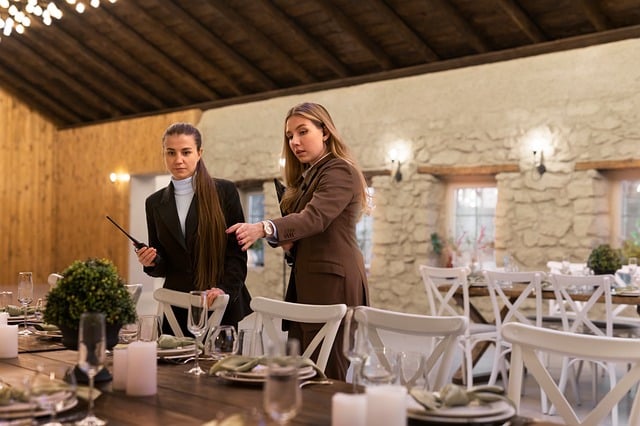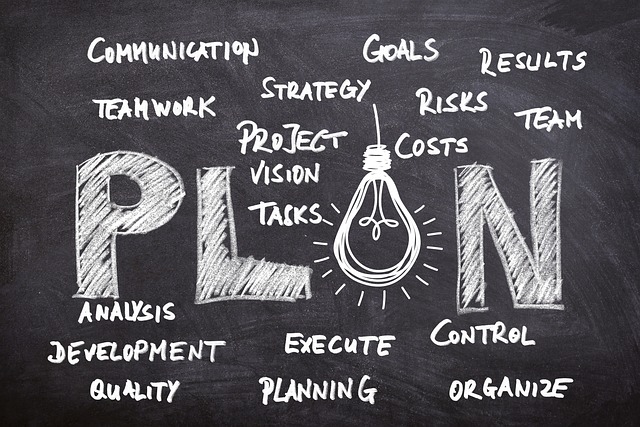Community events serve as a powerful strategy for local businesses to enhance brand visibility, engage customers directly, build loyalty, understand community needs, and contribute to neighborhood vibrancy. Through event planning, companies can attract new patrons, encourage existing ones to spend locally, and foster growth. This process involves defining the event's purpose and target audience, effective marketing through various channels, leveraging partnerships, and analyzing post-event data for continuous improvement. By executing these steps, local businesses can strengthen their customer relationships and boost both business success and neighborhood sustainability.
Community events are a powerful tool for local businesses to foster engagement, build relationships, and drive growth. This article explores the multifaceted role of events in community development, delving into their impact on business prosperity and customer loyalty. We provide an insightful guide on event planning, from strategy creation to post-event analysis, offering practical tips tailored for local businesses aiming to organize successful gatherings that resonate with their target audience. Discover how efficient event management can revolutionize your local scene.
- Understanding Community Events: Their Role and Impact on Local Businesses
- The Benefits of Hosting Events for Business Growth and Customer Engagement
- Key Steps in Planning an Effective and Memorable Local Event
- Creating a Successful Event Strategy: Tips for Engaging Your Target Audience
- Marketing and Promoting Your Community Event to Ensure Maximum Attendance
- Post-Event Analysis: Measuring Success and Gathering Feedback for Future Plans
Understanding Community Events: Their Role and Impact on Local Businesses

Community events play a pivotal role in fostering connections and strengthening local economies. For businesses, these gatherings are more than just social activities; they are powerful tools for engagement and growth. By participating in or sponsoring events, local companies can enhance their brand visibility, connect directly with customers, and build a loyal customer base. Such interactions create a positive impact, encouraging repeat business and fostering a sense of community pride.
Event planning for local businesses involves understanding the diverse needs and interests of their target audience within the community. Organizing or collaborating on events allows businesses to showcase their unique offerings while contributing to the overall vibrancy of the area. This strategy not only attracts new customers but also encourages existing patrons to spend more time and money locally, ultimately boosting the success and sustainability of both the businesses and the neighborhood.
The Benefits of Hosting Events for Business Growth and Customer Engagement

Hosting community events is a powerful strategy for local businesses to foster growth and strengthen customer relationships. These gatherings create an opportunity to showcase their brand, products, or services in a social setting, fostering a sense of community that extends beyond traditional marketing. By organizing events, businesses can increase their visibility and build a loyal customer base, as face-to-face interactions leave a lasting impression.
Event planning for local businesses allows them to engage directly with their target audience, encouraging feedback, and generating valuable insights. It also facilitates networking among potential partners or collaborators, opening doors to new opportunities. Through these events, companies can establish themselves as integral parts of the community, fostering goodwill and long-lasting relationships that contribute to sustained business success.
Key Steps in Planning an Effective and Memorable Local Event

Planning a local event that captivates and engages your community is an art, and with the right strategies, it can be a seamless process for local businesses. Here are two crucial steps to ensure your event stands out:
Start by defining your event’s purpose and target audience. Consider what your business aims to achieve—is it to raise brand awareness, foster community engagement, or promote a specific cause? Understanding your objectives will guide every decision from venue selection to promotional strategies. For instance, a local food festival would cater to food enthusiasts, while a charity walk targets fitness enthusiasts and philanthropists. Once you know who you’re reaching, tailor your event to their interests, making it relevant and memorable.
Creating a Successful Event Strategy: Tips for Engaging Your Target Audience

When planning community events, especially for local businesses, creating a successful event strategy is key to engaging your target audience. Start by understanding your community’s needs and interests. Conduct surveys or organize focus groups to gauge what types of activities, themes, or causes resonate with them. Incorporate these insights into your event concept, ensuring it aligns with the local culture and offers something unique.
For effective engagement, tailor your marketing efforts to reach specific demographics. Utilize various channels like social media, email newsletters, local newspapers, or community boards to spread the word. Offer early bird discounts or exclusive invites to build anticipation and encourage participation. Remember, a successful event strategy not only promotes attendance but also fosters a sense of belonging and strengthens ties within the community, benefiting local businesses in the long run through increased visibility and goodwill.
Marketing and Promoting Your Community Event to Ensure Maximum Attendance

When organizing a community event, effective marketing and promotion are key to drawing a large and engaged crowd. Utilize local business networks and partnerships to amplify your reach. Leverage social media platforms to create buzz around the event by sharing regular updates, engaging visuals, and interactive content. Collaborate with influencers or local celebrities who can spread the word and attract their followers.
Design eye-catching posters, flyers, and digital banners that include essential details like dates, times, location, and a compelling call-to-action. Distribute these materials through strategic channels: community bulletin boards, local shops, cafes, and social centers. Engage with local media outlets to secure coverage, offering them exclusive event tidbits or stories that will pique interest. Word-of-mouth marketing is also powerful; encourage attendees to spread the news among their networks to ensure maximum exposure and attendance for your event planning efforts.
Post-Event Analysis: Measuring Success and Gathering Feedback for Future Plans

After every event, it’s crucial to conduct a thorough post-event analysis to measure its success and gather valuable feedback for future planning. This process involves evaluating key metrics such as attendance, participant engagement, and overall satisfaction levels. By collecting data on these aspects, local businesses can gain insights into what worked well and what could be improved in subsequent events.
Feedback from participants is especially important. It provides a direct line to the community’s preferences, needs, and suggestions for future gatherings. Incorporating this feedback into event planning ensures that each subsequent event aligns more closely with the expectations of those who participate. This iterative approach not only enhances the overall experience but also fosters stronger connections within the local business community.
Community events are a powerful tool for local businesses to foster engagement, strengthen connections, and drive growth. By following a strategic event planning process, from understanding community needs to post-event analysis, businesses can create memorable experiences that attract audiences and leave a lasting impact. Implementing effective marketing strategies and utilizing insights gathered from feedback ensure continuous improvement and the success of future events, making them a game-changer for any local business looking to thrive in their community.



